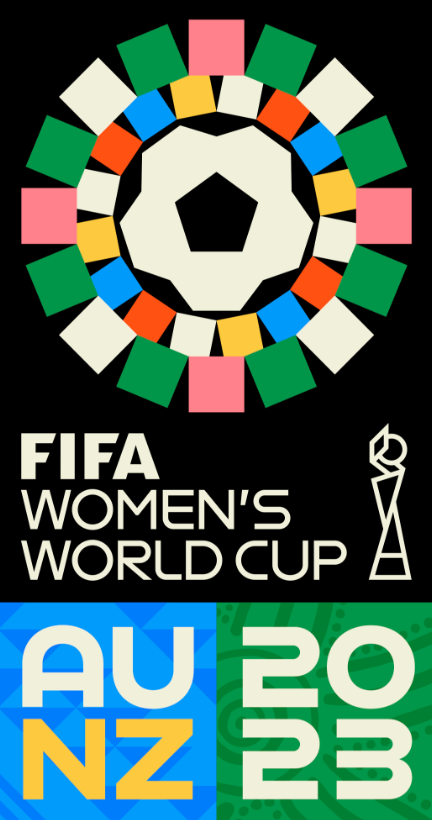For the eight past Women’s World Cups, only the United States, Norway, Germany, and Japan have ever won.
This year, none of those teams even made it to the semifinals.
The extraordinary 2023 Women’s World Cup started with a dramatic set of group matches and culminated in a finale no one saw coming. Hosted by Australia and New Zealand, it was the 9th Women’s World Cup. The World Cup is a tournament in which every participating country’s soccer team participates in group rounds, the top two teams of each group advancing in a knock-out tournament.
I am not a sports-watching person; I get easily distracted when watching games. I did not plan to watch the World Cup, preferring to spend my summer doing anything but sitting on the couch watching people attempt to kick a ball into a net. When my younger brother dragged me to the living room to watch what he promised would be the best game ever, it annoyed me. But as I watched the game unfold, something unexpected happened: I wanted to see what would happen next. And filled with historic competitiveness and barrier-breaking wins, the 2023 WWC did not disappoint.
The tournament commenced with a bang due to numerous upsets in the group stage. The historically strong teams Germany, Brazil, Canada, New Zealand and China shocked viewers by losing before the Round of 16 started. Morocco, Jamaica, South Africa and Australia were the unexpected victors. Morocco beat Colombia, becoming the lowest-ranked team ever to make the Round of 16, and Jamaica reached a stunning victory over Brazil. The US, back to back reigning champions, drew with the Netherlands, becoming second in its group. One of the most startling upsets was Colombia’s defeat of Germany in the last minute. When German soccer star Alexandra Popp scored in the 89th minute, bringing the score to 1-1, it looked like a tie was inevitable. However, Manuela Vanegas of Colombia scored with a header in the corner in the 97th minute – the last minute of the match! The match was the ticket for Colombia into the Round of 16, which was just as riveting as the group round.
One of the most significant upsets of the tournament occurred in the Round of 16 during the Sweden-US game. In a shocking turn of events, Sweden emerged victorious in a penalty shootout. It lasted until the sudden death round, when the US missed their shot, allowing Sweden to end the match. As I watched Sweden’s Lina Hurtig shoot, it appeared that Alyssa Naeher, the USA’s goalkeeper, had saved the goal. Though she stopped the initial shot, the ball bounced back into the air and crossed the line by a millimeter, winning the game for Sweden. It was the first time the United States did not make the quarter-final in WWC history! The game was particularly inspiring because of the goalkeeping of Zećira Mušović, the goalkeeper for Sweden; She saved 11 on-target shots on goal, maintaining the 0-0 tie until penalties, despite the US team having the majority of possession. In an interview after the game, she commented “I’m extremely proud of the girls and what we managed to do tonight because many people out there didn’t think that was possible.” Women’s goalkeeping has often been ridiculed, making Musovic’s accomplishments all the more impressive.
After the Round of 16, the quarter-finals arrived with even more intensity than the matches before — with Australia’s high-scoring victory over France as the main highlight. The game finished extra time 6-6, leading to a penalty shootout that lasted 21 shots. Australian substitute Cortnee Vine’s penalty was very close, but after the referee announced that it had crossed the line, all of Australia erupted in celebration. With the Australian fans screaming with joy and Aussie colors flying everywhere it was electrifying. Securing a place in the semifinals was a striking moment for the host country, which had never made it this far. The other highlights of the quarter-finals were Japan’s loss against Sweden, the Netherlands’ loss to Spain and England’s victory over Colombia.
Shortly after the conclusion of the quarter-finals, the semifinals opened with Spain vs. Sweden, Spain scoring two goals to Sweden’s one. England beat Australia by 2 goals, scoring 3 times in the second game, paving the way for an England vs. Spain final. England, the reigning European champion, was favored to win. Towards the beginning of the greatly anticipated finale, Spain’s Captain, Olga Carmona, took the lead by scoring a game-altering goal in the bottom left corner. England could not match this for the entire game, leading Spain to win 1-0 by the final whistle. While not the most dramatic of games, it was a colossal victory for Spain, now a one-time World Cup winner. The joy that came with this win was apparent just by looking at the smiles of the women holding the trophy. It was a history-making win for Spanish women, a fitting end to a history-making tournament.
Despite the accomplishments of the women in the tournament, there are still a myriad of biases against women in sports. The National Review, a conservative editorial magazine, published a controversial article in which their senior editor called women’s soccer “unwatchable.” Furthermore, directly after Spain won the WCC, Spain’s soccer federation president Luis Rubiales kissed Jenni Hermoso, a Spanish player, on the lips. FIFRO, the world player’s union, called the incident “deeply lamentable.” These examples illustrate how the media and people in power in sports do not treat women with the same respect male players receive. In addition, not only is there a difference between how women’s and men’s soccer is perceived and treated, the genders have a significant pay gap. Women’s soccer teams typically earn much less than men’s teams. However, hope is not lost: the USWNT had a victory in terms of the wage gap. The team, after fighting tirelessly for equal pay compared to their male counterparts, earned $3.3 million from the World Cup despite their early exit because of their deal with the US men’s team that splits the prize money. Furthermore, the WWC itself is an empowering event for women’s sports due to the athleticism, camaraderie and talent the players have shown.
The losses of historically formidable teams and the victory of a team that has never won illustrate how women’s teams are getting more evenly matched and therefore becoming more engaging to watch. The loss of the US team is actually beneficial for women’s soccer because it shows that nobody is unbeatable; anyone can win. What is better, watching a tournament where you know the clear winners, or a tournament where anything can happen? Spain winning the World Cup shows that the WWC is now the latter. US soccer star Meghan Rapinoe said regarding her team’s loss, “The game is so beautiful, even in its cruelest moments.” While many can relate to the disappointment of their team losing, the tight competition in this World Cup means that girls who witnessed it can take away that they can be competitive and strong. That sometimes great teams lose, and that loss is okay. That is the beauty of the Women’s World Cup — that it is made of crushing losses as much as happy victories.









